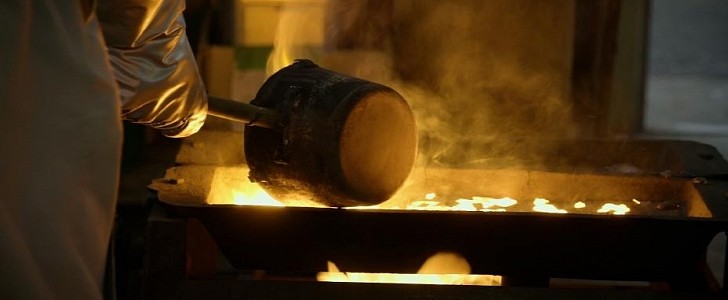On the morning of September 3rd, Nissan Motor Company announced the beginning of a new test program with assistance from Waseda University - a research effort that may have a significant impact on the industry.
This partnership’s mission is both simple yet staggeringly complex at the same time, and has global implications on the line. With the world on the brink of an all-electric revolution, a solemn question is arriving in the minds of environmental scientists and automakers alike. What do we do with all those used-up electric motors and batteries?
If Nissan is to truly become a carbon-neutral company as they’ve pledged to evolve into, this is an issue that must be addressed. This is where the young engineers at Waseda University become vital to this mission.
The overall goal is to reduce the pollution that results from standard recycling practices regarding electric motors and the rare earth elements used in their construction. Currently, the process for recycling electric motors is a very complex one, with many points where contamination can escape into the environment.
The preliminary data released by the joint Nissan-Waseda team shows that their new simplified recycling process can recover 98 percent of all rare earth metals, such as neodymium, compared to only 50 percent using the traditional recycling methods.
This significant reduction in waste material creates the potential to manufacture even more electric motors with recycled material. Ensuring this alternative form of transportation is legitimately environmentally sustainable.
By developing new recycling methods like the one created by Nissan-Waseda, the process of recycling electric cars could reach a point where their creation becomes less environmentally hazardous than in the case of the other types of vehicles. And if that works, it’s sure to make the all-electric future the auto industry has promised us to be significantly more green.
If Nissan is to truly become a carbon-neutral company as they’ve pledged to evolve into, this is an issue that must be addressed. This is where the young engineers at Waseda University become vital to this mission.
The overall goal is to reduce the pollution that results from standard recycling practices regarding electric motors and the rare earth elements used in their construction. Currently, the process for recycling electric motors is a very complex one, with many points where contamination can escape into the environment.
The preliminary data released by the joint Nissan-Waseda team shows that their new simplified recycling process can recover 98 percent of all rare earth metals, such as neodymium, compared to only 50 percent using the traditional recycling methods.
This significant reduction in waste material creates the potential to manufacture even more electric motors with recycled material. Ensuring this alternative form of transportation is legitimately environmentally sustainable.
By developing new recycling methods like the one created by Nissan-Waseda, the process of recycling electric cars could reach a point where their creation becomes less environmentally hazardous than in the case of the other types of vehicles. And if that works, it’s sure to make the all-electric future the auto industry has promised us to be significantly more green.






